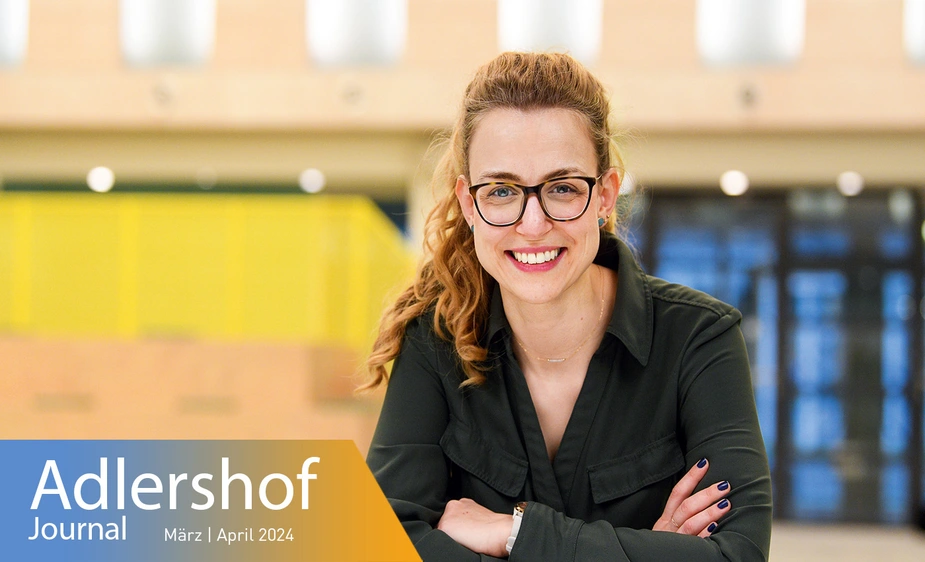Humans and machines are moderately original
HU psychologist Jennifer Haase investigates the creativity of humans and AI systems
Hereditary genius and sensitive nerves—or is this just a training effect? For more than 15 years, Jennifer Haase’s mind has been occupied with the question of what creativity is and how it can be fostered. She is investigating how technology and automation are affecting human creativity at the Department of Computer Science of Humboldt-Universität zu Berlin (HU)—and gives creative tasks not only to people but also to artificial intelligence systems, or AI.
Being creative—some can do it better than others. Many people think of creativity in this way and perceive of it as a personality trait that makes original accomplishments possible. However, research on creativity comes to different conclusions. It posits that every person has to improvise and therefore acts creatively on a regular basis. Whether this results in designing an e-vehicle, a new knitting pattern, or a new way to do less washing up—the processes taking place in the brain are the same. Each of these creative accomplishments builds on something that already exists. “We never generate something genuinely new. We combine information and reshape it in a way that lets it appear new in certain contexts,” explains Jennifer Haase.
What, for example? Take Edison’s light bulb. The inventor did not in fact hold a patent for a novel light source but for an idea for how to improve it. “There were already dozens of previous variants. Many intermediate steps were taken between the candle and the light bulb, which involved many developers,” says Haase. “This is absolutely typical for the ideas we have.” According to the psychologist and her colleagues, creativity stems from knowledge. It has as much to do with the lucid engagement with one’s environment as with the recombination of ideas and information. In this sense, AI systems, too, can be creative because they can access a vast trove of data. From that, they fish out elements and combine them—from Nigerian novels to Renaissance paintings, to YouTube videos about upcycling.
“Most often, human creativity lives off the combination of distant ideas,” explains Haase. “However, our brain is limited in terms of what we can perceive, remember, and the number of topics we can familiarise ourselves with. AI, on the other hand, draws from a great bulk of data. And so, I see great potential in view of creativity here.” In a 2023 study, the researcher examined the accomplishments of today’s AI systems in their capacity as everyday innovators together with her colleague Paul Hanel. The researchers asked 100 research subjects and six AI systems to generate ideas. One of the questions was what one could do with a brick. “We then had students and an AI rate the originality of the responses—on a scale from one to five.”
The human jurors and the rating AI took a closer look at a few hundred ideas. The judgement was almost unanimous: “When it comes to generating ideas, the average AI of today is as comparatively uncreative as us humans,” says Jennifer Haase and laughs. It was a tie game between man and machine. “However, I also have to say that the breadth of results was relatively wide.” One AI couldn’t generate any responses to certain questions, for example, and another doled out results that felt rather unformed to Haase and Hanel. One AI system’s responses, however, proved to be particularly original: “ChatGPT4 was the clear winner, showed the best performance. This system also has by far the largest dataset.”
Artificial intelligence is as original as we are—on average at least. The next big humiliation for humanity? There is some solace in this: “The very best, most creative, and most original ideas in our study still came from humans,” says Jennifer Haase. “This was a result that many found comforting.” It will remain to be seen, however, whether people will be able to keep up this advantage. The immense capacities of AI systems are a headache for many. “Until now, the introduction of AI has always been associated with the narrative of relieving us from strenuous work. However, here is a technology that relieves us from thinking and being creative,” says the psychologist. “This affects a social class, the creative class, that has previously not felt affected by AI. These are often academics. I don’t think we as a society have even begun to digest what this development means.”
Nora Lessing for Adlershof Journal
